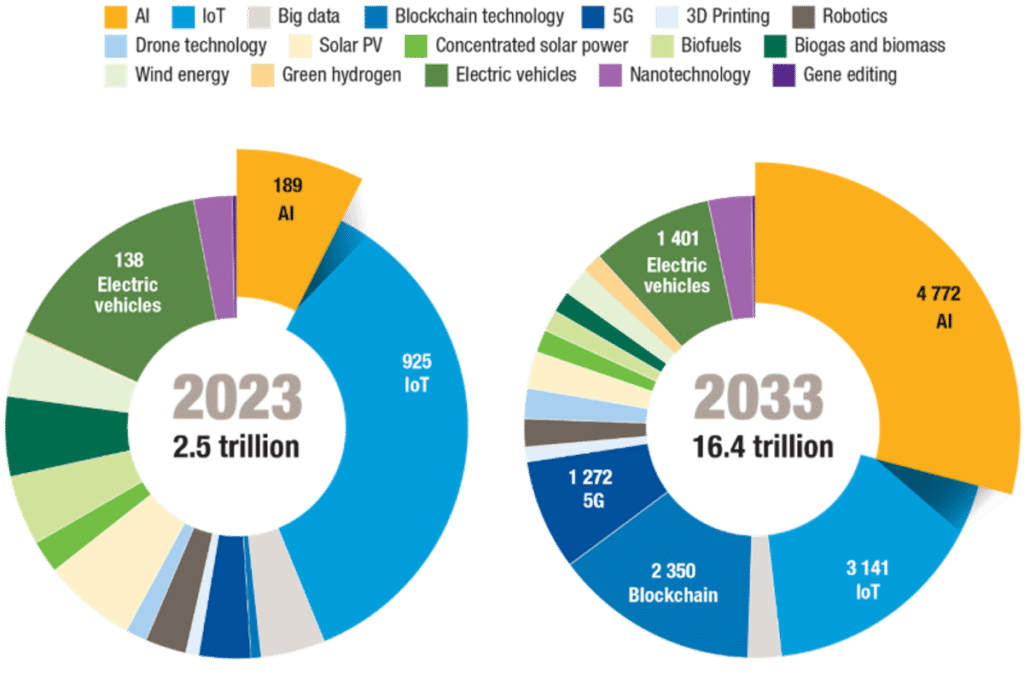The global impact of AI on work is already tangible: up to 40% of jobs could be affected before 2033.
The revolution of artificial intelligence (AI) is advancing at a breakneck pace. Far from being merely a technological promise, it is already transforming key sectors of the global economy. However, as its applications multiply, so do concerns about its effects on employment. According to a new report from the United Nations, up to 40% of jobs worldwide could be disrupted by AI-driven automation over the next decade.
In the specific case of Spain, this percentage translates into a staggering calculation: over 8 million jobs would be at risk in the coming years. These are tasks particularly exposed to automation, such as administrative work, data entry, basic customer service, or processing repetitive information. These are jobs where AI has already proven to be faster, more precise, and more efficient.
The Size of the Opportunity and the Challenge
The AI market is estimated to be $4.8 trillion by 2033, a figure comparable to the size of the German economy. The speed of technological development and the concentration of capital are creating a new global tech elite, dominated by a handful of countries and large companies.

Currently, only about a hundred companies, mainly in the United States and China, dominate most of the global investment in AI research and development. Companies like Microsoft, Apple, and Nvidia already exceed three trillion dollars in market capitalization, more than the GDP of entire nations. This concentration is fueling a new technological gap that threatens to leave many economies, including Spain’s, behind if swift action is not taken.
Spain: Facing a Structural Challenge
Spain has made significant strides in digitalization, but it still lags in key capabilities related to artificial intelligence: R&D investment, specialized infrastructure, data availability, and advanced training. The lack of a robust and executive strategy that places AI at the center of industrial and labor policy could lead to a loss of competitiveness and social tensions due to structural unemployment.
The challenge is twofold. On one hand, protecting current jobs that can be reskilled. On the other, generating new job opportunities that harness the transformative potential of AI in sectors such as health, energy, education, and cybersecurity. To achieve this, it will be essential to invest in continuous training, professional reskilling, and business innovation, in addition to ensuring that automation does not lead to the precarization of human work.
From Fear to Opportunity
Despite the potential impact, AI should not be viewed solely as a threat. Well-managed, it can become a driver of productivity, efficiency, and well-being. The challenge is to balance innovation with social justice, ensuring that the benefits of technological progress do not remain in the hands of a few.
Recent history shows that technological progress is not linear. In each industrial revolution, jobs were lost, but new ones were also created. What is different today is the speed of change and the scale of disruption. Spain has the opportunity to anticipate and lead the transition if it places people at the center of its artificial intelligence strategy.
Because the future of work will not be simply human or artificial. It will be hybrid, collaborative, and, above all, determined by the policies adopted today.

